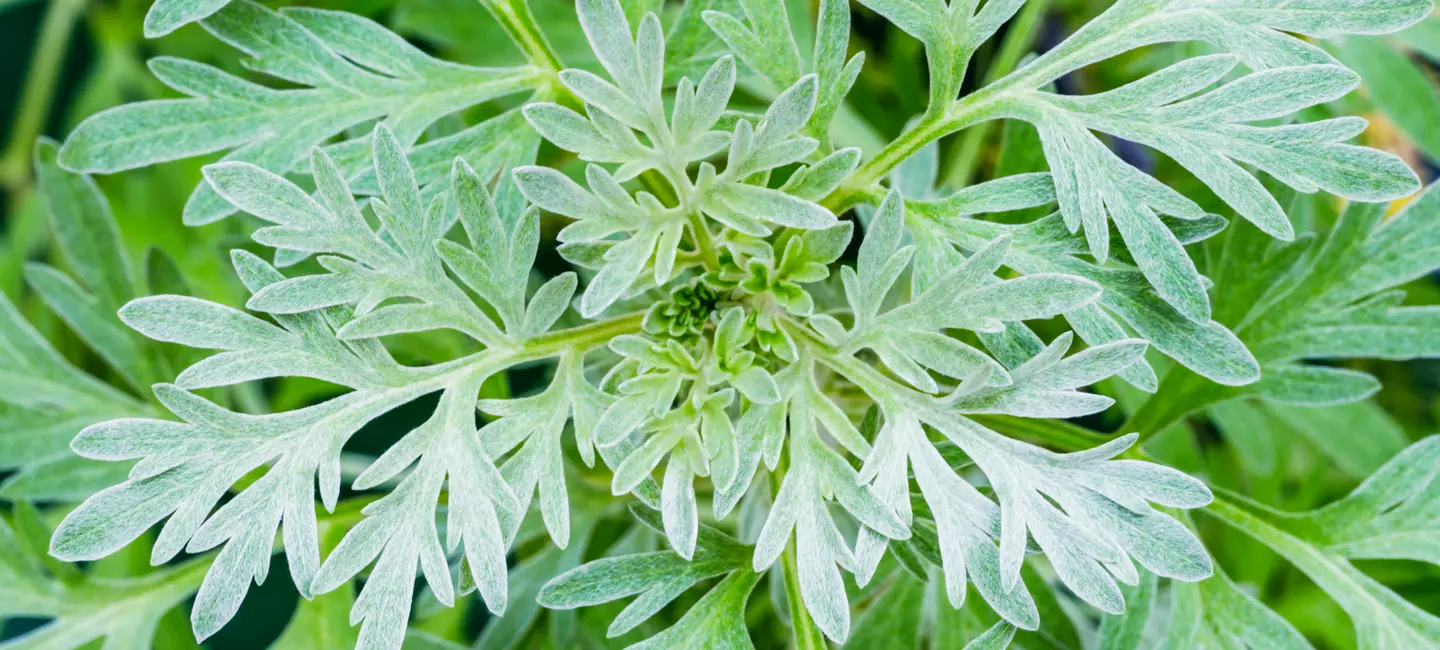
Wormwood (Artemisia absinthium) is an herb used in the alcoholic drinks vermouth and absinthe. Its oil contains the chemical thujone, which may be poisonous.
The thujone in wormwood oil excites the central nervous system and can cause seizures and other adverse effects. Other chemicals in wormwood might decrease swelling.
People use wormwood for digestion problems, Crohn disease, a kidney disorder called IgA nephropathy, osteoarthritis, and many other conditions, but there is no good scientific evidence to support these uses. There is also no good evidence to support using wormwood for COVID-19. Using thujone-containing wormwood products can be unsafe.
Don't confuse wormwood with Artemisia herba-alba, Mugwort, Sweet Annie, Wormseed, or Ginger. These are not the same.
Is It Effective?
There is interest in using wormwood for a number of purposes, but there isn't enough reliable information to say whether it might be helpful.
Is it Safe?
When taken by mouth: Thujone-free wormwood is commonly consumed in foods and beverages, such as bitters and vermouth. Thujone-free wormwood is possibly safe when used as medicine, short-term. But wormwood that contains thujone is possibly unsafe. Thujone can cause seizures, kidney failure, vomiting, and other serious side effects.
When applied to the skin: Wormwood extract is possibly safe as an ointment.
Special Precautions & Warnings:
Pregnancy: Wormwood is likely unsafe when taken by mouth as medicine during pregnancy. Some wormwood products contain the chemical thujone. Thujone might affect the uterus and endanger the pregnancy. There isn't enough reliable information to know if applying wormwood to the skin is safe when pregnant. Stay on the safe side and avoid use.
Breast-feeding: There isn't enough reliable information to know if wormwood is safe when taken by mouth or applied to the skin while breast-feeding. Stay on the safe side and avoid use.
Allergy to ragweed and related plants: Wormwood may cause an allergic reaction in people who are sensitive to the Asteraceae/Compositae family. Members of this family include ragweed, chrysanthemums, marigolds, daisies, and many others.
A rare inherited blood condition called porphyria: The thujone in wormwood oil might increase the body's production of chemicals called porphyrins. This could make porphyria worse.
Kidney disorders: Taking wormwood oil might cause kidney failure. If you have kidney problems, talk with your healthcare provider before taking wormwood.
Seizure disorders, including epilepsy: Wormwood contains thujone, which can cause seizures. Wormwood might increase the risk for seizures in people who have a history of seizures.
Medications used to prevent seizures (Anticonvulsants)
Interaction Rating=Moderate Be cautious with this combination.
Wormwood may increase the risk of seizures. Taking wormwood with medications used to prevent seizures may decrease the effects of these medications and increase the risk for seizures.
Herbs that contain thujone: Wormwood contains a chemical called thujone. Thujone can be poisonous when taken in large amounts. It can cause seizures, kidney problems, and vomiting. Taking wormwood with other supplements that also contain thujone increases the risk of these effects. Examples of supplements that contain thujone include oak moss, tansy, thuja, and yarrow.
There are no known interactions with foods.
Thujone-free wormwood is commonly found in foods and alcoholic drinks such as bitters, vermouth, and absinthe.
As medicine, there isn't enough reliable information to know what an appropriate dose of wormwood might be. Keep in mind that wormwood products that contain a chemical called thujone may be poisonous. Consult a healthcare professional before using.
Absinth, Absinthe, Absinthe Suisse, Absinthii Herba, Absinthites, Absinthium, Afsantin, Ajenjo, Alvine, Armoise, Armoise Absinthe, Armoise Amère, Armoise Commune, Armoise Vulgaire, Artesian Absinthium, Artemisia absinthium, Common Wormwood, Grande Absinthe, Green Fairy, Green Ginger, Herba Artemisae, Herbe aux Vers, Herbe d'Absinthe, Herbe Sainte, Indhana, Lapsent, Madderwort, Menu Alvine, Qing Hao, Vilayati Afsanteen, Wermut, Wermutkraut, Western Wormwood, Wurmkraut.
Information on this website is for informational use only and is not intended to replace professional medical advice, diagnosis, or treatment. While evidence-based, it is not guaranteed to be error-free and is not intended to meet any particular user’s needs or requirements or to cover all possible uses, safety concerns, interactions, outcomes, or adverse effects. Always check with your doctor or other medical professional before making healthcare decisions (including taking any medication) and do not delay or disregard seeking medical advice or treatment based on any information displayed on this website.
© TRC Healthcare 2024. All rights reserved. Use and/or distribution is permitted only pursuant to a valid license or other permission from TRC Healthcare.
